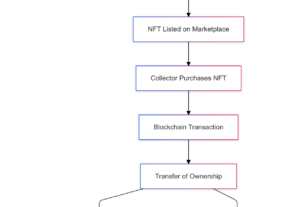What is a Certificate of Origin?
A Certificate of Origin is a document that certifies the country of origin of goods being exported. It plays a pivotal role in international trade by providing proof that the goods were produced or manufactured in a specific country.
- How Advanced Internal Rating-Based (AIRB) Enhances Credit Risk Management in Banking
- Unlocking Property Ownership: The Comprehensive Guide to the Bundle of Rights in Real Estate
- Cashing In on the Baby Boomer Wealth Transfer: Investment Opportunities of a Lifetime
- Unlock Stable Returns: What Are Blue-Chip Stocks and Why You Should Invest
- How to Become an 8(a) Firm: Eligibility, Benefits, and Certification Guide
Types of COs
There are two main types of Certificates of Origin: non-preferential and preferential.
Bạn đang xem: How to Obtain a Certificate of Origin (CO): A Guide for Exporters and Importers in International Trade
-
Non-preferential CO: This type is used for general customs purposes and verification of the country of origin. It is not tied to any specific trade agreement but is essential for ensuring that goods comply with general customs regulations.
-
Preferential CO: This type is used under free-trade agreements such as NAFTA, USMCA, and CAFTA-DR. It allows exporters to benefit from reduced or eliminated tariffs when exporting goods to countries that are part of these agreements.
Why is a Certificate of Origin Needed?
A Certificate of Origin is indispensable for several reasons:
Customs Clearance
A CO facilitates smooth customs clearance by providing clear evidence of the country of origin. This helps customs authorities determine the correct duties and taxes applicable to the imported goods.
Trade Agreements
COs ensure compliance with trade agreements, allowing exporters to take advantage of preferential tariffs and other benefits. For instance, under agreements like NAFTA or USMCA, a preferential CO can significantly reduce or eliminate tariffs on certain goods.
Regulatory Compliance
COs help prevent dumping practices, enforce import restrictions or quotas, and ensure fair trade practices. They are crucial for maintaining fair competition in international markets.
What is Included in a Certificate of Origin?
A typical Certificate of Origin includes several key pieces of information:
-
Xem thêm : How to Become an 8(a) Firm: Eligibility, Benefits, and Certification Guide
Exporter and Importer Information: Details about both parties involved in the transaction.
-
Product Description: A detailed description of the goods being exported.
-
Country of Origin: The country where the goods were produced or manufactured.
-
Shipping Details: Information about the shipment, including dates and modes of transport.
Additional Requirements
In some cases, additional documentation may be required, such as commercial invoices and waybills. These documents provide further evidence of the transaction and help in verifying the authenticity of the CO.
How to Obtain a Certificate of Origin
Obtaining a Certificate of Origin involves several steps:
Issuing Authorities
COs are usually issued by Chambers of Commerce, designated government agencies, or other authorized bodies.
Application Process
Here’s how you can obtain a CO:
-
Registration: Register with the issuing authority, often through an online platform. This step ensures that you are recognized as a legitimate exporter.
-
Xem thêm : How to Understand and Use an Amortization Schedule for Your Loans
Application Submission: Submit your application with all required details such as exporter and importer information, product description, and country of origin.
-
Verification: The issuing authority will verify your application to ensure compliance with international rules and guidelines. This may involve checking documentation and ensuring accuracy.
-
Issuance: Once verified, the CO will be issued. Many issuing authorities now offer electronic issuance options, which include security elements like QR codes to prevent forgery.
Specific Requirements for Different Trade Agreements
Different trade agreements have specific requirements for Certificates of Origin:
NAFTA/USMCA
Under NAFTA and its successor USMCA, a uniform Certificate of Origin is used. This certificate must be completed in English or French (for Canada) and includes detailed information about the goods being exported. The certificate is valid for one year from the date it was issued.
CAFTA-DR and Other FTAs
Other free-trade agreements like CAFTA-DR also have their own specific CO requirements. These may include additional documentation or specific formatting guidelines.
EUR.1 and EUR-MED
For shipments within the EU or with EU trade agreement countries, EUR.1 and EUR-MED certificates are used. These certificates are essential for claiming preferential tariffs under these agreements.
Common Challenges and Best Practices
Obtaining a Certificate of Origin can sometimes be challenging:
Accuracy and Compliance
It is crucial to ensure that all information on the CO is accurate and compliant with international regulations. Inaccuracies can lead to delays, fines, or even goods being turned away at customs.
Coordination with Importers
Coordination with importers is essential to ensure that all necessary documentation is provided correctly. This includes communicating clearly about what information needs to be included on the CO.
Nguồn: https://gapinsurance.click
Danh mục: Blog




